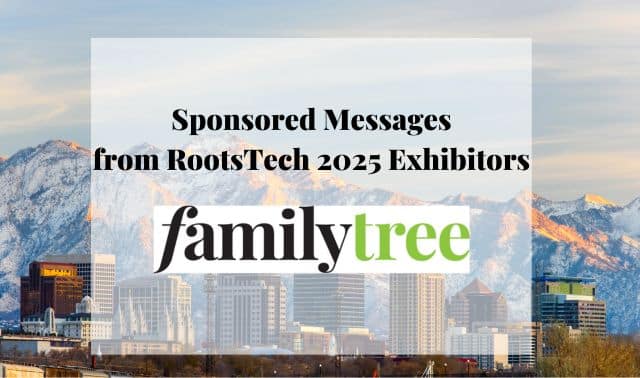In 1976, Alex Haley’s book Roots galvanized popular interest in genealogy. The story—a research-based yet imaginative tracing of Haley’s family history through American slavery and to his African homeland—especially inspired those with African ancestors.
Tony Burroughs, a professional genealogist and author of Black Roots: A Beginner’s Guide to Tracing the African-American Family Tree (Fireside), got hooked on genealogy after hearing Haley speak in 1969.
“At the time, none of us had even heard the word genealogy,” Burroughs says. He looked for a how-to guide—not easy to find in pre-Roots days. “I read a book from the Boy Scouts, and I’ve been doing genealogy ever since.”
Finding his roots has been an uphill battle. “When I got the Boy Scout book, it talked about the fundamentals of doing genealogy, but it didn’t talk about how to do African-American genealogy.” Like him, thousands of others have discovered that the pursuit of African roots has become much like the story of Africans in America: one of overcoming. And an emerging range of innovative resources is making a huge difference.
Before the 20th century, African-Americans were minimally represented in historical records that European-ancestored researchers are accustomed to using, such as censuses, vital records, land records and immigration records. Documents relating to slavery can be difficult to find, and many contain sparse data—for example, descriptions of an owner’s slaves, but not their names. The most important of sources, spoken family lore, was often lost when slavery separated families.
“But what I like to do is concentrate on what can be done, not what cannot be done,” Burroughs says. He adds that improvements in technology and genealogical skill building have greatly helped the African-American genealogist. “Volumes of records have been microfilmed, starting in the 1970s. Later, it was the computerization of records, the growth of the web, and scanning of different records and making them widely available.”
For example, Freedman’s Bank Records, with 480,000 entries from 1864 to 1875, were published on CD and now are part of FamilySearch’s free Record Search Pilot Site, HeritageQuest Online and Ancestry.com . Rutgers University professor Gwendolyn Midlo Hall documented 100,000 Louisiana slaves of the 18th and 19th centuries; her work is online at <www.ibiblio.org/laslave>. AfriGeneas, which provides data, links, message boards and chats, has been an African-American genealogy hub since the 1990s.
The past few years have seen a surge of launches: Afriquest is a free repository for documents, images and family stories. Lowcountry Africana focuses on resources related to slaves from the Gullah and Geechee cultures of the coastal Southeast. The Digital Library on American Slavery provides details on more than 150,000 names from Southern court records. The Trans-Atlantic Slave Trade Database contains information that’s been gathered since the 1960s on more than 35,000 slave-trade voyages. And ProQuest’s new African AmericanHeritage site promises a mix of records, tools and research guidance.
Genetic research and testing also has contributed to some genealogists’ understanding of their African origins. This new research path has gained steam thanks to DNA tests of famous folks (think Oprah Winfrey) and targeted services such as African Ancestry. Though results can be inconclusive (see the December 2009 Family Tree Magazine to learn why), they may deepen a sense of identity and direct further research.
The genealogical community has responded to these developments. More than 100 genealogy groups specific to African origins exist in the United States, Canada and the Caribbean. Many of their members met for the first time at the inaugural International Black Genealogy Summit last October.
Popular culture has taken notice, too. Burroughs points to PBS’ “
African American Lives” series, started in 2006. Host Henry Louis Gates gave many African-Americans their first look at genealogical research when he revealed the roots of celebrities including Winfrey and actor Morgan Freeman.
“It’s a good start,” says Burroughs, a presenter at the summit. “The international part is definitely needed.” He cites a lack of understanding about historic African cultures and forced migration to many points of the globe.
Burroughs predicts that curiosity about African family history will continue to grow. “But I think also you have to factor in the aging of baby boomers, black and white. It has just as much influence over growth of genealogy as books and television programs. When you get older, you have a tendency to look to the past.”
The Standbys
Though recent online launches have created new research paths, most African-American genealogists will probably still need to consult these classic sources:
» US Colored Troops
Service records of almost 180,000 African-Americans who served in segregated Civil War units are on microfilm at the National Archives and Records Administration (NARA) and Family History Library (FHL). They’re also digitized on subscription websites Ancestry.com and Footnote.com.
» Slave Narratives
In the 1930s, workers for the Federal Writers Project interviewed more than 2,300 former slaves. You can search or browse transcriptions of these interviews—and see photos of many of the subjects—free on the Library of Congress website.
» Freedmen’s Bureau Records
After the Civil War, the Bureau of Refugees, Freedmen and Abandoned Lands help former slaves find work, legalize their marriages and more. Records are on NARA and FHL microfilm. Virginia marriages are searchable on FamilySearch.
» Southern Claims Commission Records
Former slaves often had to testify in former owners’ reimbursement claims for losses during the Civil War. Court records with their testimony are on NARA and FHL microfilm; they’re digitized on
Ancestry.com and Footnote.
Tip
Try to identify a slave ancestor’s owner. As human “property,” slaves were often named in court, probate and other records of the slaveowning family.
From the March 2010 Family Tree Magazine


